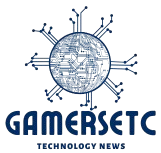DeepMind, a leading AI company owned by Google, is working on a new AI system called Gemini that could surpass the technology behind OpenAI’s ChatGPT. Company CEO Hassabis, who’s been tasked with accelerating Google’s AI efforts, said in a Wired report that his engineers are using techniques from AlphaGo – an AI system that was the first to defeat a professional human player at the extremely sophisticated board game Go.
First teased at Google’s developer conference last month where Google unveiled a slew of AI projects, Gemini is a large language model that works with text and is similar to GPT-4, the LLM powering ChatGPT. However, the use of techniques from AlphaGo will give Gemini a new spin, enabling the ability to plan things and solve problems, according to the report.
AlphaGo used a method called reinforcement learning, which allows software to learn from trial and error and receive feedback on its performance. This method could enable Gemini to plan and solve problems more effectively. The next big challenge for language models may be to interact with the internet and computers more autonomously, and DeepMind appears to be working on that with Gemini.
But don’t expect Gemini to be packaged into a ChatGPT-like application made available to the public just yet. The AI model is still in the works and may take months to complete, according to DeepMind’s CEO Hassabis. He said in the report that its development could cost hundreds of millions of dollars. For comparison, ChatGPT costs more than $100 million.
Google already has a ChatGPT-like AI chatbot called Bard, but users have said that it is not as impressive as OpenAI’s chatbot. Gemini could change that – and Google has high hopes for its development. In April, the company merged DeepMind with Google’s main AI lab, Brain, to form Google DeepMind.
Hassabis is convinced that AI can bring enormous benefits to humanity, such as in scientific discovery for health and climate issues. He said that if done right, it would be the “most beneficial technology for humanity ever.”
However, Hassabis isn’t advocating for AI development without caution. He was among the many experts and prominent figures who signed a statement warning that AI could pose a threat comparable to nuclear war or a pandemic. In the report, he also cautioned that there is not much time left to create safeguards if AI progresses at its current speed.

